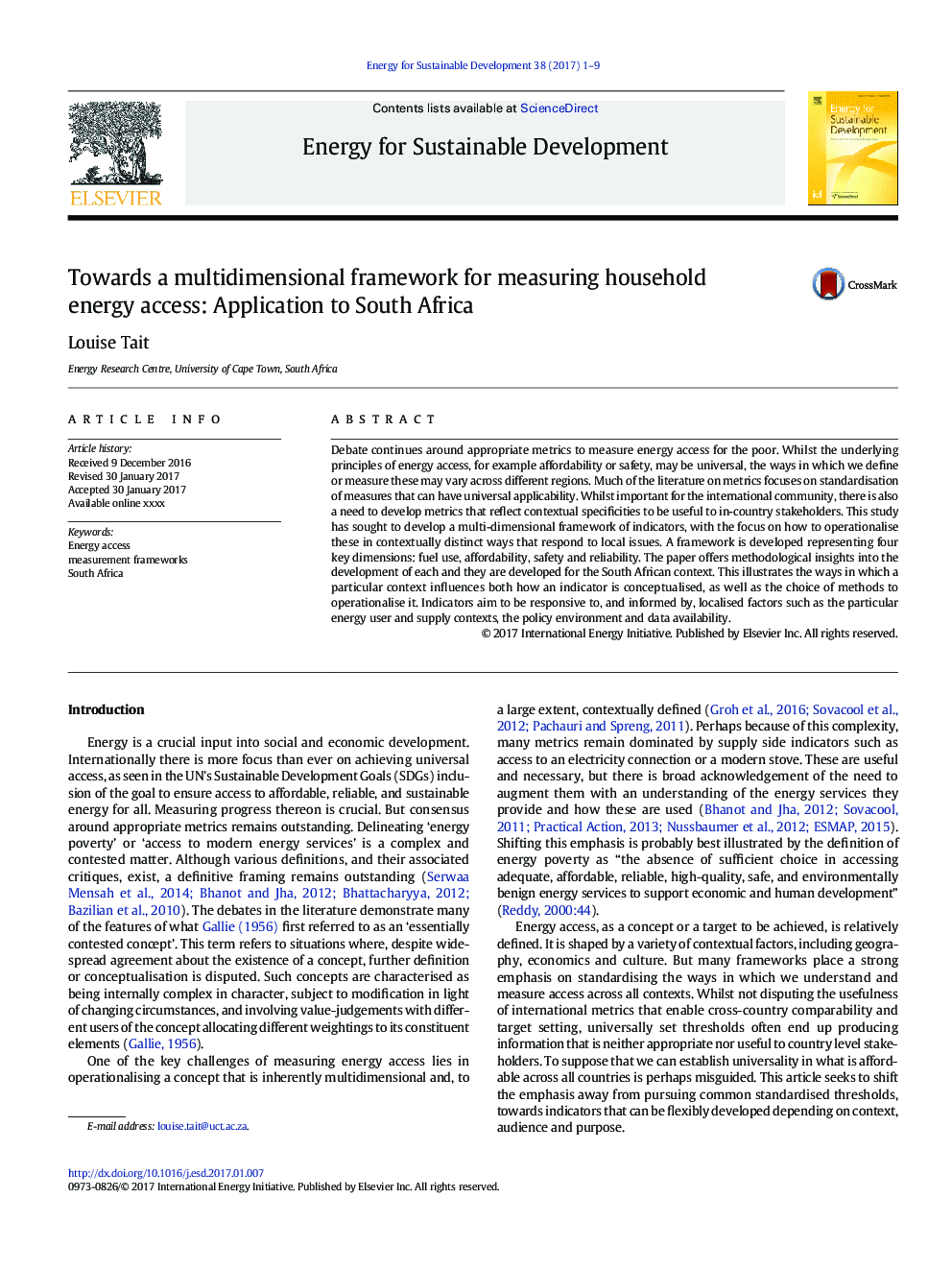| Article ID | Journal | Published Year | Pages | File Type |
|---|---|---|---|---|
| 5114365 | Energy for Sustainable Development | 2017 | 9 Pages |
Abstract
Debate continues around appropriate metrics to measure energy access for the poor. Whilst the underlying principles of energy access, for example affordability or safety, may be universal, the ways in which we define or measure these may vary across different regions. Much of the literature on metrics focuses on standardisation of measures that can have universal applicability. Whilst important for the international community, there is also a need to develop metrics that reflect contextual specificities to be useful to in-country stakeholders. This study has sought to develop a multi-dimensional framework of indicators, with the focus on how to operationalise these in contextually distinct ways that respond to local issues. A framework is developed representing four key dimensions: fuel use, affordability, safety and reliability. The paper offers methodological insights into the development of each and they are developed for the South African context. This illustrates the ways in which a particular context influences both how an indicator is conceptualised, as well as the choice of methods to operationalise it. Indicators aim to be responsive to, and informed by, localised factors such as the particular energy user and supply contexts, the policy environment and data availability.
Keywords
Related Topics
Physical Sciences and Engineering
Energy
Energy (General)
Authors
Louise Tait,
